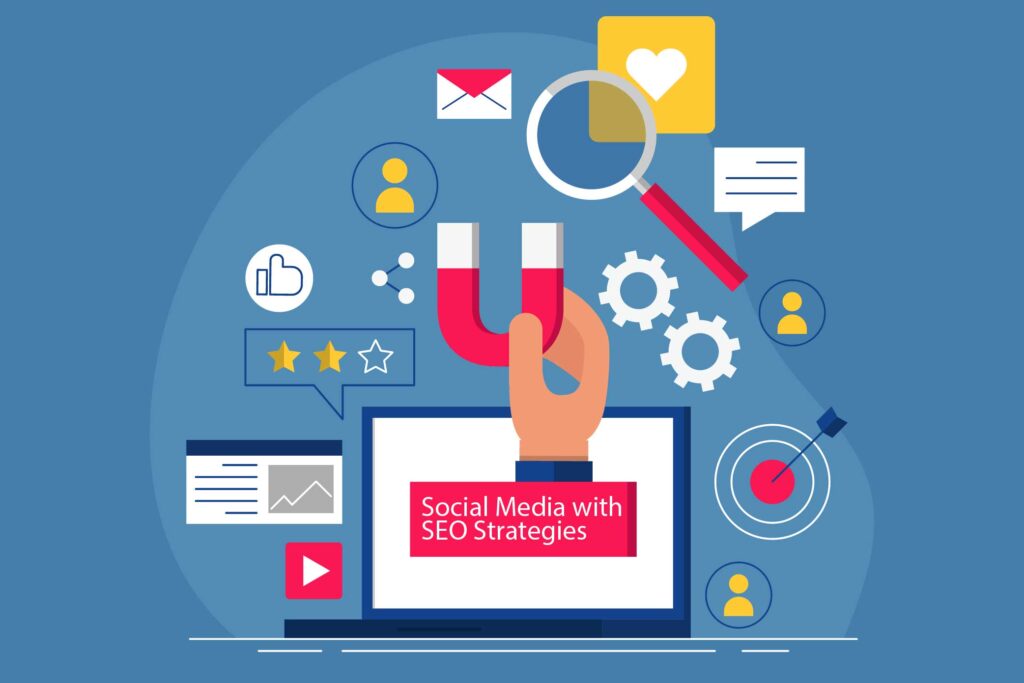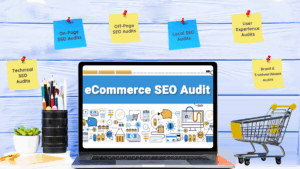In the contemporary digital era, social media has taken over our lives. It has changed how we interact, communicate, and get information. From individuals to businesses, social media has opened up endless possibilities for reaching and engaging with a global audience. Regarding inbound marketing, social media plays a crucial role in driving traffic, generating leads, and building brand awareness. This article will explore why social media is an indispensable component of inbound marketing strategies.
Social Media’s Influence on Inbound Marketing
Inbound marketing attracts and engages potential customers through valuable content and experiences. Social media is a powerful channel that complements and amplifies the impact of inbound marketing efforts. It provides a platform to connect with the target audience, create brand awareness, and establish meaningful relationships. Let’s delve deeper into the various aspects of social media’s role in inbound marketing.
Enhancing Brand Visibility and Awareness
Social media platforms provide a huge space to display your brand’s character, principles, and products. By consistently sharing relevant and engaging content, businesses can increase their brand visibility and raise awareness among their target audience. Through compelling visuals, informative videos, and captivating storytelling, social media helps businesses establish a strong brand presence that resonates with their audience.
Sharing consistent and meaningful content—like the kind highlighted in our Digital Marketing Services for Cardiology—can help position your brand as a trusted voice in your industry.
Targeted Audience Reach and Engagement
One of the key advantages of is its ability to target specific demographics and interests precisely. By leveraging user data and advanced targeting features, businesses can precisely reach their ideal customers. This enables them to engage with a highly relevant audience, increasing engagement, conversations, and conversions. Social media allows two-way communication, fostering meaningful interactions between brands and customers.
Driving Traffic to Your Website
Social media platforms serve as effective referral sources, driving substantial traffic to your website. By sharing compelling content and strategically placing links, businesses can entice social media users to visit their websites for further information, products, or services. This increased website traffic boosts brand visibility and opens up opportunities for lead generation and sales conversions.
Building a Strong Online Community
Social media offers a platform for businesses to build vibrant online communities centered around their brand. These communities allow customers to connect, share experiences, and engage in discussions. By nurturing these communities, businesses can foster brand loyalty, advocacy, and word-of-mouth referrals. Building a strong online community on social media helps businesses create a sense of belonging and strengthens customer relationships.
Social Listening and Customer Insights
Social media provides businesses a valuable opportunity to listen and gain insights into their target audience. Businesses can understand customer preferences, pain points, and expectations by monitoring conversations, mentions, and feedback. This data can refine marketing strategies, improve products or services, and tailor content that resonates with the audience’s needs. Social listening empowers businesses to stay agile and responsive to customer demands.
Facilitating Content Distribution and Promotion
Making good material is only half the battle; successfully sharing and marketing it is also crucial. Social media platforms offer a vast network to distribute and amplify your content to a wider audience. By strategically leveraging hashtags, influencers, and social sharing features, businesses can extend the reach of their content beyond their immediate following. This increased exposure leads to more shares, engagement, and the potential for viral content.
Integrating Social Media with SEO Strategies
Search engine optimization (SEO) and social media are interconnected. Likes, shares, and comments are social signals that might influence search engine results. By optimizing social platforms profiles, utilizing relevant keywords, and creating shareable content, businesses can enhance their visibility in search engine results pages (SERPs). Integrating social platforms and SEO strategies ensures a holistic approach to digital marketing and maximizes organic visibility.
Measuring and Analyzing Campaign Performance
One of the advantages of social platforms marketing is the ability to measure and analyze campaign performance in real time. Social media platforms provide comprehensive analytics tools that track key metrics like reach, engagement, click-through rates, and conversions. By analyzing this data, businesses can gain valuable insights into what works and needs improvement. This data-driven approach enables continuous optimization of marketing efforts for better results.
Leveraging Influencer Marketing on Social Media
Influencer marketing has emerged as a powerful brand strategy to leverage reach and credibility. Businesses can tap into new audiences and build trust by collaborating with influencers with a significant following and influence in their respective niches. Influencers can create authentic content, endorse products or services, and drive engagement through their loyal fan base. Leveraging influencer marketing on social platforms can significantly boost brand visibility, credibility, and sales.
Social Media Advertising for Lead Generation
Social media provide robust advertising features allowing businesses to target and generate leads effectively. By leveraging precise targeting options, businesses can showcase their offerings to users most likely to be interested. Social platforms advertising enables businesses to create highly engaging ad formats, such as lead-generation forms and call-to-action buttons, to capture user information and drive conversions. It is a powerful tool for expanding the customer base and increasing sales opportunities.
Platforms like Sprout Social make it easier to track trends and customer sentiment. These insights can guide content creation, improve customer service, and even influence product development.
Crisis Management and Reputation Building
Social media has transformed how businesses handle crises and manage their online reputation. In times of crisis or negative publicity, provides a platform to address concerns, respond promptly, and control the narrative. It allows businesses to showcase their transparency, empathy, and commitment to resolving issues. Effective crisis management on can turn a potentially damaging situation into an opportunity to build trust, loyalty, and brand advocacy.
Staying Ahead of the Competition
In today’s highly competitive digital landscape, businesses must stay ahead to thrive. Social platform provides a competitive edge by offering insights into competitors’ strategies, industry trends, and customer preferences. By monitoring competitor activities, businesses can identify gaps and opportunities, refine their marketing strategies, and differentiate themselves in the market. Social media acts as a catalyst for innovation and staying relevant in a rapidly evolving business environment.
The Future of Social Media in Inbound Marketing
The role of social media in inbound marketing is poised to grow even more significantly in the future. As technology advances, platforms will continue to evolve, offering new features and possibilities for businesses to engage with their audience. Integrating artificial intelligence, augmented reality, and virtual reality into will revolutionize how brands interact with customers and deliver personalized experiences. We will remain a key pillar of inbound marketing strategies, enabling businesses to build lasting relationships and achieve long-term success.
Conclusion
In conclusion, social media is an indispensable part of inbound marketing. Its ability to enhance brand visibility, reach a targeted audience, drive website traffic, build communities, and provide valuable insights makes it a powerful tool for businesses. By leveraging effectively, businesses can amplify their inbound marketing efforts, connect with their audience on a deeper level, and achieve their marketing goals. Embrace power and unlock its immense potential for your business.











